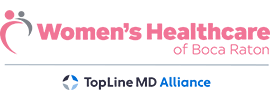Disclaimer: Please note that this blog is for educational purposes only, it includes general information on health-related topics. Women’s Healthcare of Boca Raton is giving medical advice to Patients Only. Follow this link to request an appointment with Dr. Ellman.
Many women experience a higher body temperature when they’re pregnant. Others feel cold, which, most of the time, is a normal occurrence. However, sometimes, it can indicate that the patient has an underlying health condition, such as thyroid problems and iron-deficiency anemia.
So, is being cold always a sign of pregnancy? What can you do when you’re suddenly feeling cold in early pregnancy?
In this article, we’ll explore the causes of chills in early pregnancy and other factors that may indicate that you’re pregnant. We’ll also look at strategies you can implement into your life to help you warm up and discuss when to see an OBGYN services clinic.
Are Chills a Sign of Early Pregnancy?
Are chills a sign of early pregnancy? Is it normal if I feel cold during pregnancy?
Yes, it’s completely normal to have chills when you’re pregnant, even though most people do not experience them. That said, we can mention other common signs that may indicate that a person is pregnant, such as:
- Spotting and cramping: During early pregnancy, the egg attaches itself to the lining of your uterus, which is the womb. When this happens, you will experience pains in your lower abdomen and light bleeding.
- Increase in breast size: One of the first signs of pregnancy is an increased breast size. Your breasts become swollen, tender, and painful to the touch, and the areolas may darken in color.
- Nausea with or without vomiting: You may experience morning sickness one or two months after you get pregnant, and this can happen at any time of the day. However, some women also feel nausea earlier, but not everyone experiences this.
- Missed periods: If your period is one week or more late and you’re during your childbearing years, you might be pregnant. However, there are other factors that can cause a missed period, such as stress, anxiety, diet and infection.
- Frequent urination: If you’re pregnant, you may notice that you need to urinate more frequently. This is because your body produces more blood during pregnancy, which causes the kidneys to process more fluid into the bladder.
- Nasal congestion: When you’re pregnant, the hormone levels and blood production in your body increase, causing your nose’s mucous membranes to swell and dry out. As a result, you may develop a stuffy or runny nose.
What Causes You to Feel Cold When You are Pregnant?

There are a lot of reasons why you are experiencing pregnancy chills. When you experience a cold with no fever during pregnancy, below are the likely causes:
Low Blood Pressure
While high blood pressure is very common during pregnancy, some women also experience symptoms of low blood pressure, when their readings are 90/60 or lower.
This can happen as the body is trying to work up enough blood for the mother and the baby. Many pregnant women with low blood pressure don’t develop any symptoms, but when the body is pumping more blood to the tissues and organs, they may have clammy skin.
Other signs that they can develop:
- Nausea.
- Dizziness.
- Fainting.
- Blurred vision.
- A weak but fast pulse.
Fatigue
Are you experiencing chills in early pregnancy? If you notice a change in basal body temperature during pregnancy, a common cause for this is fatigue. This is because your body needs enough sleep to regulate temperature effectively.
Interestingly, your body is unable to get enough sleep if you’re always experiencing fatigue. When you’re tired, you may notice that you have become uncomfortable and need to urinate frequently.
Hormones
An increase in your body’s hormone levels can affect your basal body temperature during pregnancy. You can be hot this minute and cold the next.
In addition, this may also cause morning sickness, which makes you throw up immediately after eating. Also, when you don’t eat, your body will lack the energy needed to keep you feeling warm.
Hypothyroidism
Thyroid hormones help in the development of your baby’s brain and nervous system, and they also control your heart rate and metabolism. When you have hypothyroidism, that is, when you don’t have enough of these hormones, you may feel cold, tired, depressed and constipated.
Anemia
Anemia is a condition that occurs when there aren’t enough oxygen-carrying red blood cells in the body.
Pregnant women have a significant risk of developing iron-deficiency anemia: The body uses iron to make red blood cells. During pregnancy, the body needs more iron to supply oxygen-rich blood to the mother and baby.
Common symptoms of anemia include:
- Cold hands and feet
- Weakness
- Pale skin.
- Irregular heartbeat
- Shortness of breath.
That said, in this case, we recommend signing up for ob-gyn services to prevent a high-risk pregnancy.
What Can You Do to Warm up?
If you’re experiencing chills in early pregnancy, we recommend following these tips to help you warm-up:
- Wearing extra layers: Wearing additional layers of clothing and covering up with a thick blanket is a sure way to feel warm again. However, make sure you feel comfortable and cozy under the thick clothes and blankets.
- Having enough rest: If you are experiencing fatigue and other sleep issues, you need to have enough rest to keep warm. You can also take warm baths to relax your body and nerves.
- Taking iron supplements: Prenatal vitamins contain iron and can help provide protection against anemia. Sometimes, doctors may also prescribe iron supplements, and some women also get treated with intravenous iron if the situation is serious. It also helps to add more iron-rich foods to your diet, such as beans, poultry, and red meat.
- Treating hypothyroidism: Thyroid hormone replacement drugs can help treat hypothyroidism. These are safe for you and your baby, but you should avoid taking them at the same time you’re taking your prenatal vitamins. This is because the minerals in the vitamins may make it hard for the body to absorb the hormone.
Is it Normal to Feel Suddenly Cold in Early Pregnancy?
Is feeling suddenly cold an early sign of pregnancy?
This depends on your body. In our clinic, we meet a lot of patients who feel hot during pregnancy. Their hormones change, and the blood supply to their skin increases.
There are others who feel cold instead, and this is completely normal.
Some women also have chills if they’re having a miscarriage, but there doesn’t appear to be a connection between miscarriages and feeling cold.
Signs of a miscarriage can include severe back pain, heavy spotting, and abdominal cramping.
If you’re concerned about your symptoms or chills, please see an obstetric specialist.
When Should you See a Doctor?

Even though having chills in pregnancy is normal, you should visit a women’s health clinic immediately when you experience it. This is because the pregnancy chills may be a symptom of a condition that might affect you and your baby.
The doctor can help you manage your chills, and if there’s a need for you to take medications, they will prescribe them.
Book Your Appointment Today
Having chills when you’re pregnant can occur when you have low blood pressure, hypothyroidism, or iron-deficiency anemia.
We can easily help you manage these symptoms, and in most cases, we recommend our patients to follow a healthy diet, get enough sleep and take prenatal vitamins, among others.
However, if you still have questions about chills in early pregnancy, call our clinic at (561) 273-7364 or (561) 465-8834 to book an appointment with us. We look forward to meeting you and helping you throughout your pregnancy.

Dr. Ellman is a Board Certified OBGYN who established his medical practice in South Florida over 25 years ago. His office, Women’s Healthcare of Boca Raton, is located in Boca Raton, Florida at West Boca Medical Center. Dr. Ellman attended Albert Einstein College of Medicine of Yeshiva University, where he received his medical degree. He went on to intern at Beth Israel Hospital in Boston- an affiliate of Harvard Medical School- and continued his residency at North Shore University Hospital in Manhasset, New York- an affiliate of Cornell Medical School.
Dr. Ellman has practiced Obstetrics and Gynecology in the Boca Raton area since 1995. In addition to treating patients at West Boca Hospital, Dr. Ellman also treats patients through his own private practice, Women’s Healthcare of Boca Raton, located on the West Boca Medical Campus.

